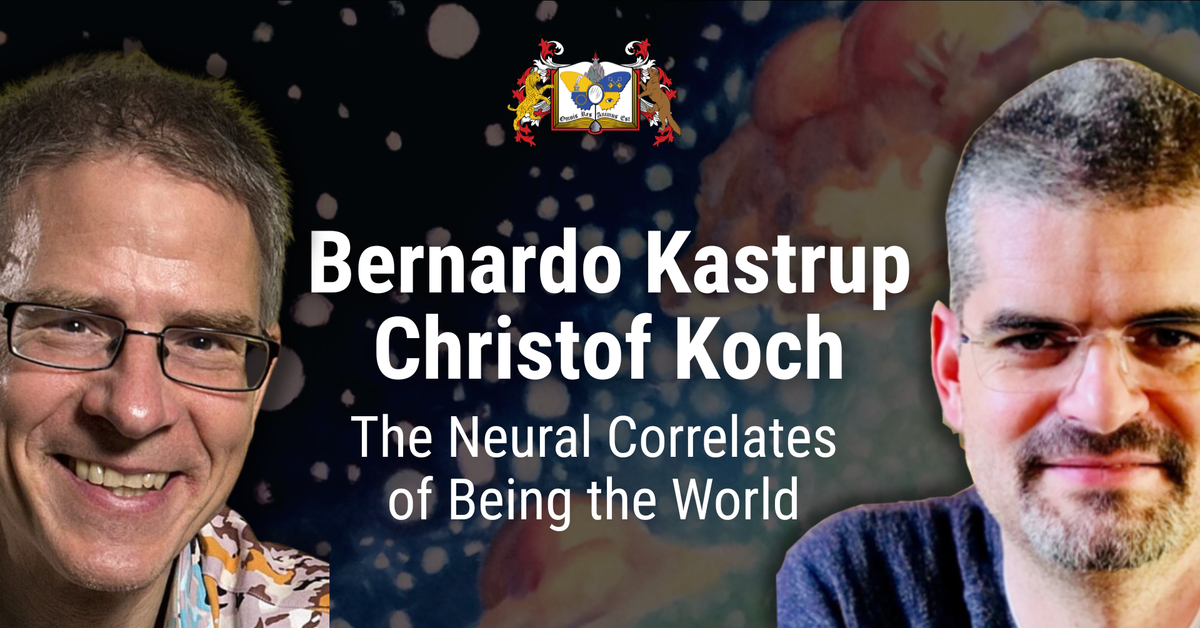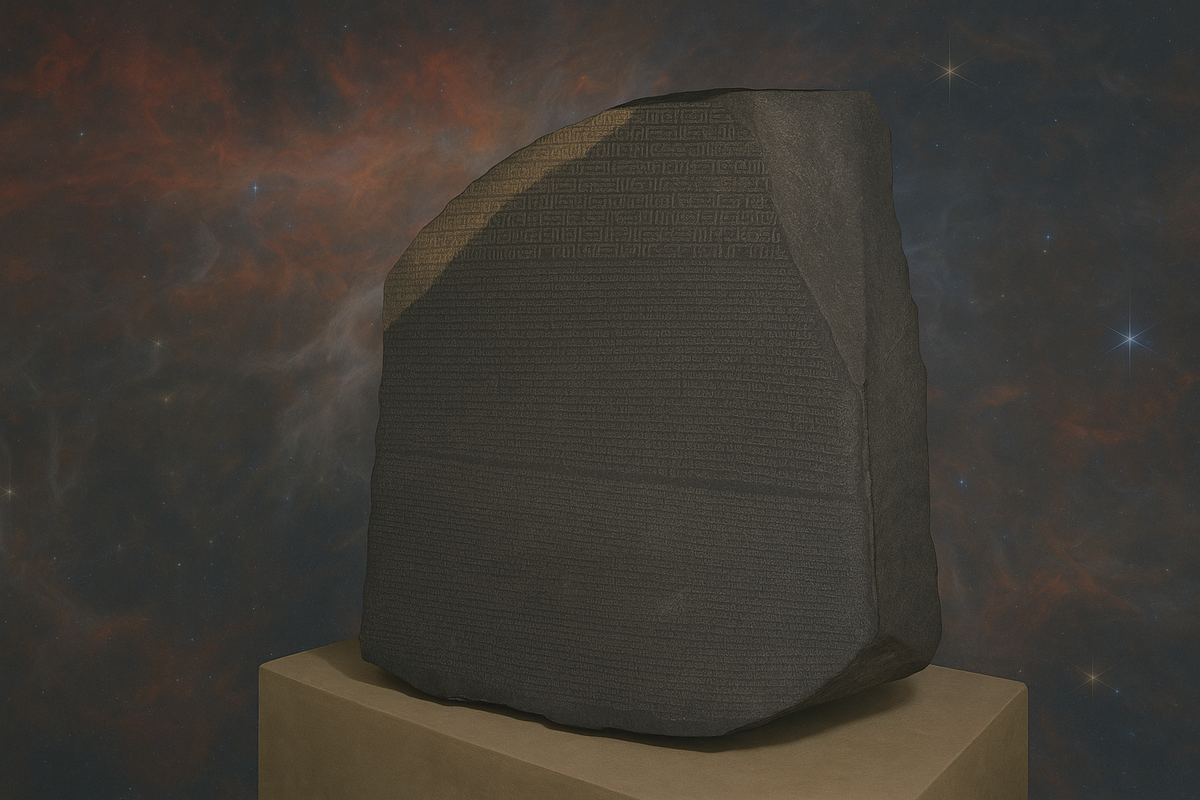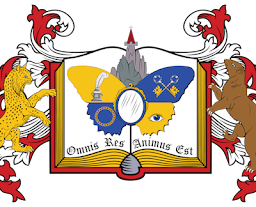Recording: Christof Koch - The neural correlates of being the world
Special guest in dialogue with Bernardo Kastrup, 29th of July

In this session we discussed :
- How (psychedelic) experience should inform science
- How physicalism can obstruct scientific progress
- Criteria for non-biological consciousness - IIT vs Idealism
- IIT's unique place amongst theories of consciousness
Most useful for me, was understanding that Integrated Information Theory is predominately about 'causal power,' not information as we normally think of it. In other words, its about having things that can make changes to other things. To determine if something is conscious, the question becomes, does a system have a sufficiently integrated network of internal causes and effects to be self contained in some meaningful way.
Both Christof and Bernardo emphasised that one of the most misunderstood aspects of the theory was that maximising integration isn't just about adding more states. Adding more causes and effects could even cause one large system to become two.
A useful metaphor is dissolving something in liquid - there is a maximum amount of sugar you can add to your tea before it just sinks to the bottom in undissolved clumps.
The metaphor Christof uses is that of an empire - eventually it gets so big that it splits. The initial power centre can't compete with growing centres of influence further away.
This all has some surprising implications for what might be considered conscious, but its an empirical proposition: it leads to predictions that can be tested, verified or falsified.
So it is exciting to know that Christof and Bernardo are collaborating in search of new experiments that could forward our understanding of consciousness, and thus, of reality itself.
Session Background
Christof is one of the most celebrated figures in consciousness science, renowned for his groundbreaking work alongside Francis Crick (Nobel prize winner for co-discovery of the DNA double helix) and spearheading the modern search for the neural correlates of consciousness.
A prolific researcher, author, and public intellectual, he has played a central role in shaping the field, earning widespread recognition for bringing serious scientific attention to questions once thought purely philosophical. His leadership at the Allen Institute and his championing of Integrated Information Theory have positioned him as a visionary voice at the intersection of neuroscience, technology, and the nature of mind.
Integrated Information Theory (IIT) attempts to account for consciousness by identifying and mathematically modeling the intrinsic structure of information that gives rise to subjective experience.
In this dialogue with Bernardo Christof has reflects on the limitations of physicalist explanations for consciousness, and how physicalism may even be holding back progress in science.
Respectively, whilst once critical of IIT, Bernardo Kastrup now believes it's recent iterations could map how universal consciousness dissociates into seemingly separate minds, and provide insight into the experience of Mind at Large. He gave an introduction to IIT and these ideas last week which you can see here:

You can view the recording of their previous 2024 dialogue here:
About Christof
Christof Koch was the president and chief scientist of the Allen Institute for Brain Science in Seattle where he remains as a Meritorious Investigator. He is known for his interdisciplinary approach, combining insights from neuroscience, physics, and philosophy to tackle the complex problem of consciousness. His work has been published in over 350 scientific papers, significantly shaped modern understanding of the neural correlates of consciousness and visual perception.
In collaboration with Francis Crick, Christof initiated the modern search for the neuronal correlates of consciousness, a systematic experimental program to identify the minimal bio-physical mechanisms jointly sufficient for any one specific conscious percept. In collaboration with Giulio Tononi, he co-developed the Integrated Information Theory of consciousness.
Timestamps for 2025 dialogue:
0:00 Welcomes and appreciations
3:00 Redefining physicalism: there are no events
5:18 Psychedelic experiences witnessed by trained neuroscientist
9:30 Does direct experience afford new knowledge
15:40 Christof’s motivations and intuitions on consciousness
21:00 Are DMT entities real? On Andrew Galimore
24:40 Does physicalism obstruct science?
30:00 IIT on nested and amalgamated selves
36:40 Consciousness vs self-consciousness
41:00 Quantum computers good candidates for consciousness
44:30 Why IIT is called that = Aristotelian information
45:00 Even two logic gates would be conscious
49:50 In analytic idealism dissociation requires actively enforced fault lines
55:00 Markov blankets and IIT
57:00 Could spiritual experiences be simple brain disorders?
1:00:00 Why do auditory sensations differ so much from visual ones
1:07:00 IIT and memory
1:11:00 IIT deal and unreportable experiences, eg anaesthesia
1:17:00 IIT, meaning and archetypal meaning
1:21:00 Minimal experiences in constructed physical object
1:24:00 Simulation is not causal power
1:26:00 IIT vs Idealism on minimally systems
1:29:00 what most people don’t get about IIT: more info isn’t always more integration
1:30:00 The difference between Bernardo’s model and Christof regarding dissociation
1:35:40 IIT can’t account for cosmic consciousness
1:40:00 How experience informs science
1:46:00 how young scientists are getting discouraged from consciousness study
1:48:00 Testable predictions from IIT: no brain activity required for conscious experience
1:56:00 Goals of Christof’s upcoming workshop
Some links mentioned in the talk:
https://pubmed.ncbi.nlm.nih.gov/19595754/
https://www.amazon.co.uk/Death-Astonishment-Confronting-Mystery-Strangest/dp/1250357756
https://www.youtube.com/watch?v=JRlS5EY1-zc
